The First Family visited Goree Island while in Senegal.
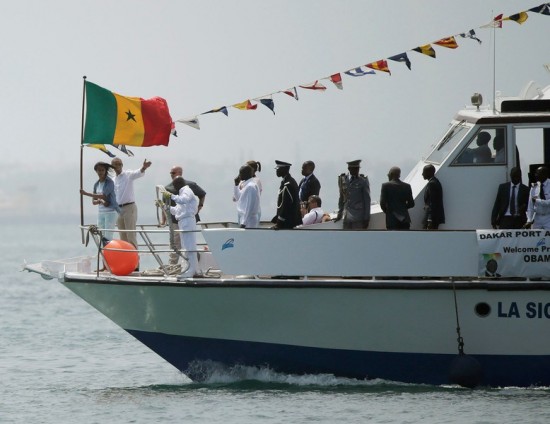
U.S. President Barack Obama (2nd L) and his daughter Malia (L) arrive at Goree Island, a former slave trader's port, June 27, 2013 in Dakar. Obama's trip, his second to the continent as president, will take him to Senegal, South Africa and Tanzania.
REUTERS/Gary Cameron
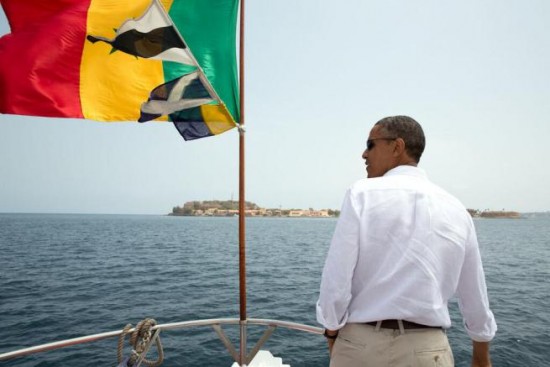
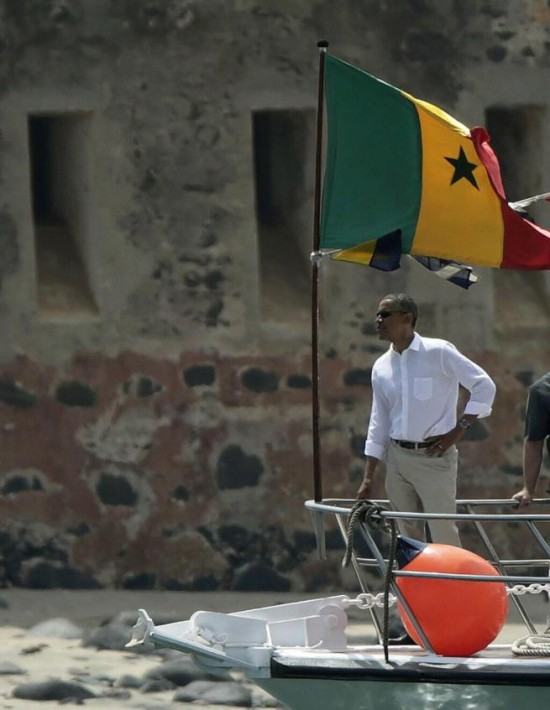
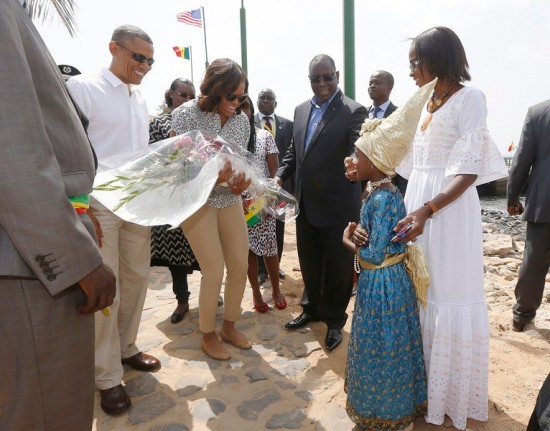
U.S. President Barack Obama and First Lady Michelle Obama receive a bouquet as they arrive on Goree Island near Dakar, Senegal, June 27, 2013. Obama visited the island on Thursday where African slaves in past centuries were shipped west.
---REUTERS/Jason Reed
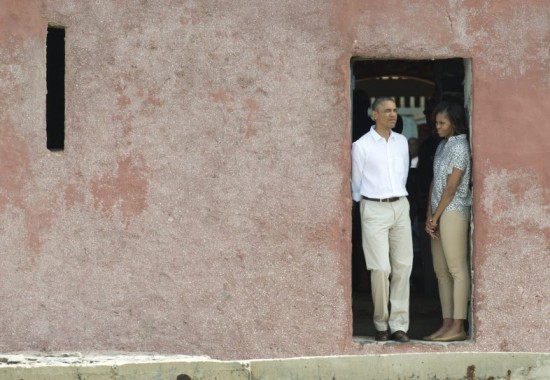
US President Barack Obama (L) and First Lady Michelle Obama look out from the Door of No Return while touring the House of Slaves, or Maison des Esclaves, at Goree Island off the coast of Dakar on June 27, 2013. Obama and his family toured the museum at the site where African slaves were held before going through the door and being shipped off the continent as slaves.
---AFP PHOTO / SAUL LOEB
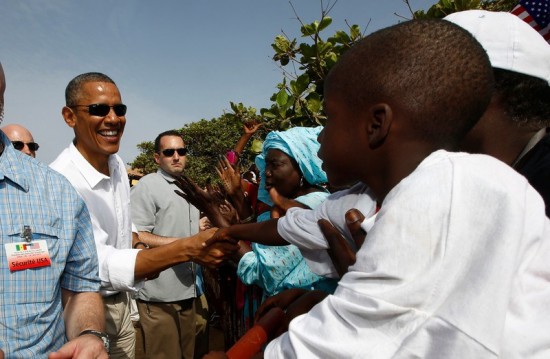
U.S. President Barack Obama greets well-wishers during his visit to Goree Island near Dakar, Senegal, June 27, 2013. Obama visited the island on Thursday where African slaves in past centuries were shipped west.
--REUTERS/Jason Reed
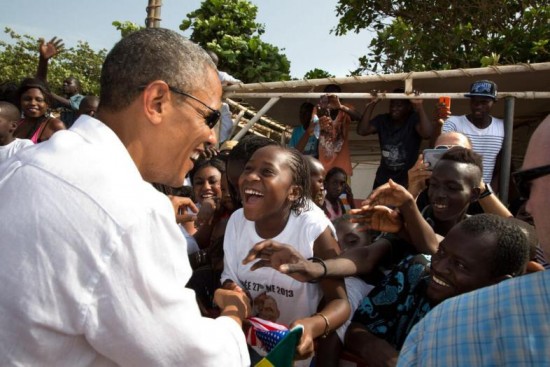
The wonderful zizi wrote some words about the people of Senegal.
A Note About the People of Senegal
Teranga means “Welcome” in Wolof, the predominant language. And the people living on this Westernmost bulge of the African continent truly are some of the most hospitable people you’ll ever know. Climactically, however, Senegal is the Western Hemisphere’s house of horrors, as many of our hurricanes are birthed off Senegal’s coast when hot dry Sahara and Sahel winds meet southerly cold North Atlantic winds plus moisture from the warm Atlantic Ocean currents, The ITCZ clash zone known as The Doldrums , to form the building blocks of storms
. Yet nothing takes one’s breath away more than standing on the craggy Senegalese coast in the evening and seeing the copper-gold sunset over the rambunctious Atlantic ocean. No wonder Senegal’s world famous poet and first post-colonial President, Leopold Senghor, called this land his “Childhood Kingdom” whose heartbeat is the Tam Tam (talking drum).
Senghor’s eyes, though were mesmerized by the beauty of Senegalese women. His famously erotic poem, Black Woman, published in his 1948 Anthologie de la nouvelle poésie nègre et malgache , became a historical landmark for placing the African woman on a pedestal as a worthy model of beauty, thus challenging the centuries-old denigration of black women as antithesis of ideal white femininity.
“Naked woman, black woman
Dressed in your color that is life, in your form that is beauty!
I grew up in your shadow. The softness of your hands
Shielded my eyes, and now at the height of Summer and Noon,
From the crest of a charred hilltop I discover you, Promised Land
And your beauty strikes my heart like an eagle’s lightning flash.
[…snip]
Naked woman, dark woman
Oil no breeze can ripple, oil soothing the thighs
Of athletes and the thighs of the princes of Mali
Gazelle with celestial limbs, pearls are stars
Upon the night of your skin. delight of the mind’s riddles,
The reflections of red gold from your shimmering skin
In the shade of your hair, my despair
Lightens in the close suns of your eyes.”
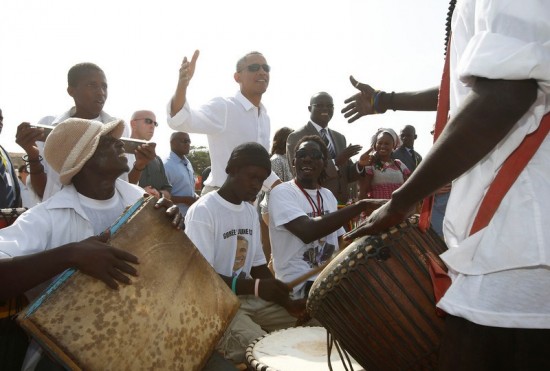
U.S. President Barack Obama meets with African drummers on Goree Island near Dakar, Senegal, June 27, 2013. Obama visited the island on Thursday where African slaves in past centuries were shipped west.
Here are some videos.
First Lady Michelle Obama speaks to students at Martin Luther King school, an all-girls middle school in Dakar, Senegal.
Barack Obama, the first US President of African ancestry visits Goree Island in Senegal -- the point of departure for the slave trade. Deborah Lutterbeck report
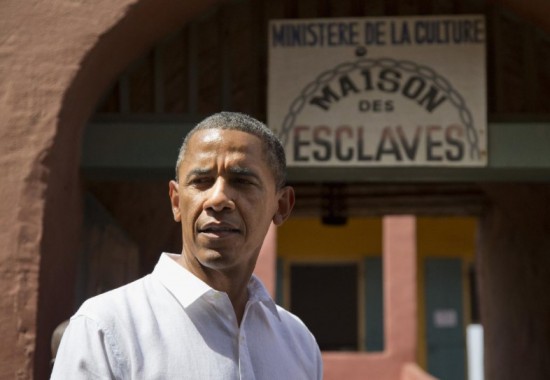
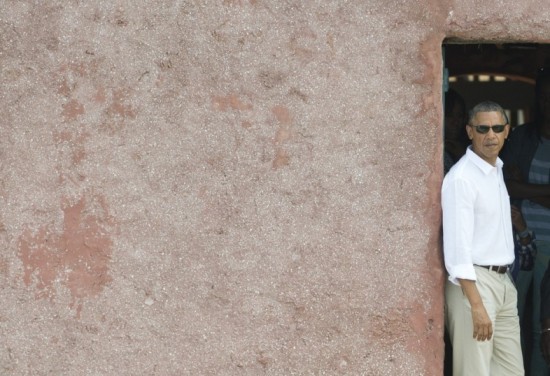
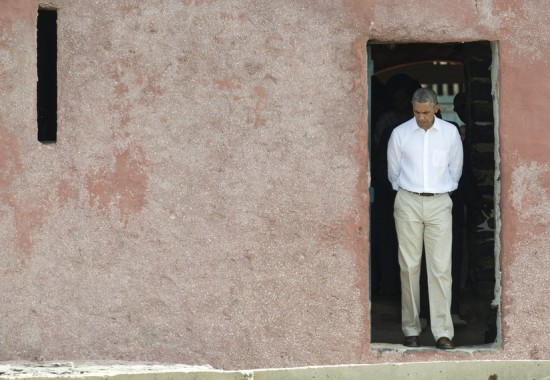
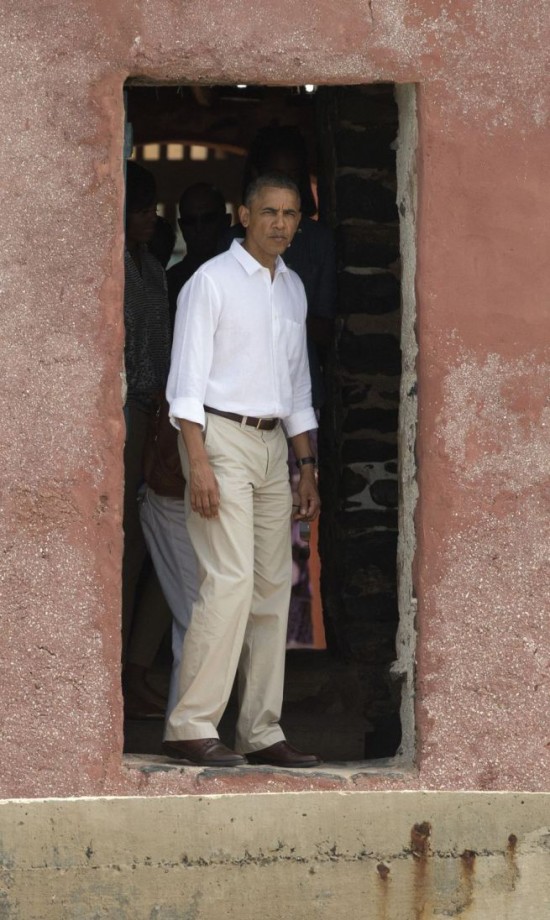
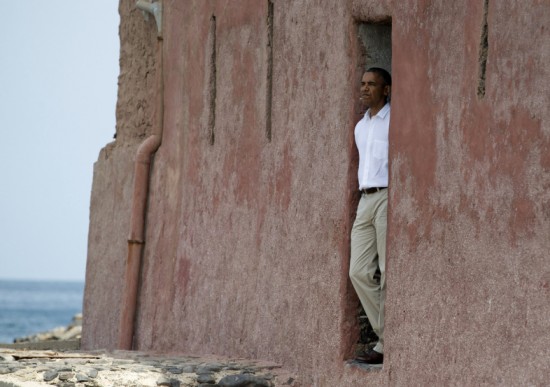

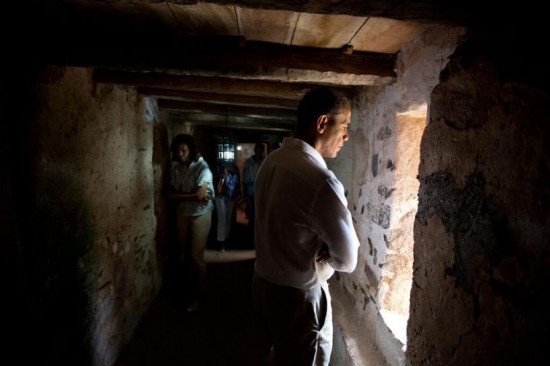
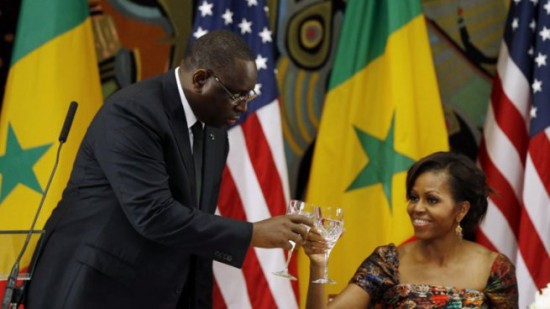
Senegal’s President Macky Sall toasts First Lady Michelle Obama during an official dinner in Dakar
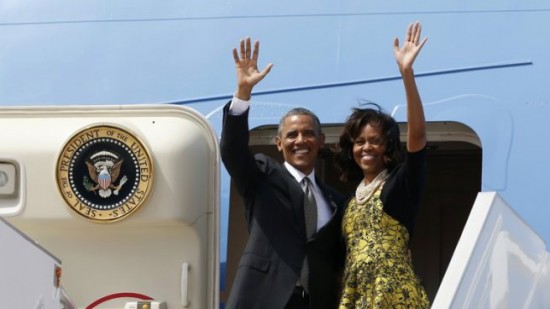


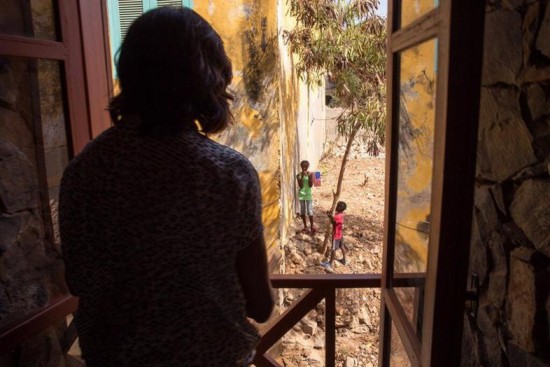
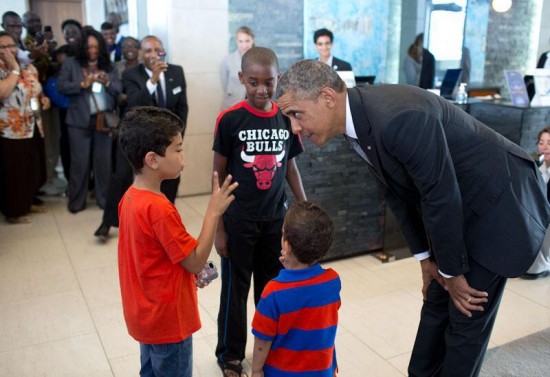
President Obama greets youngsters in lobby of hotel before departing Senegal
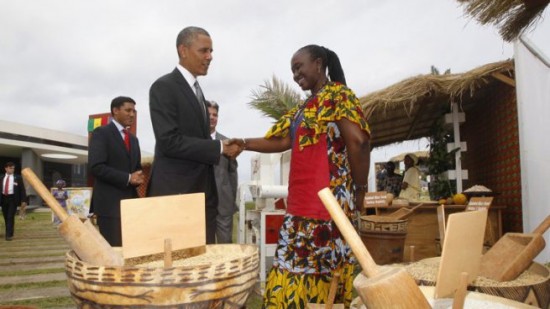
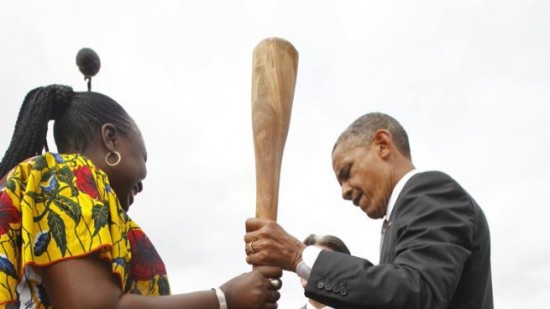
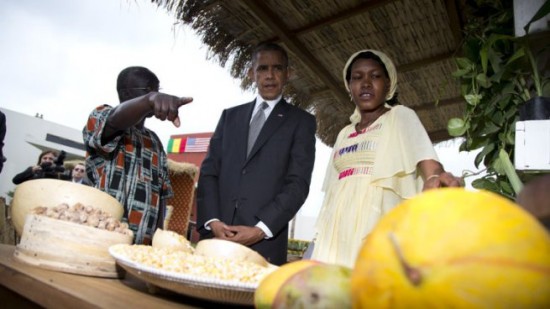
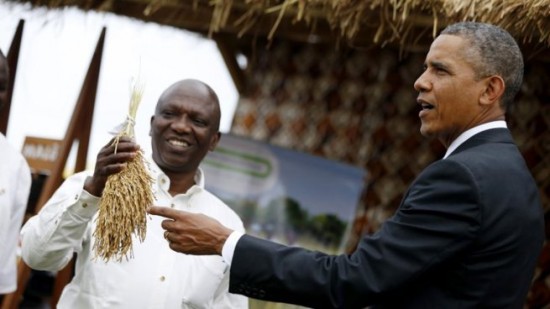
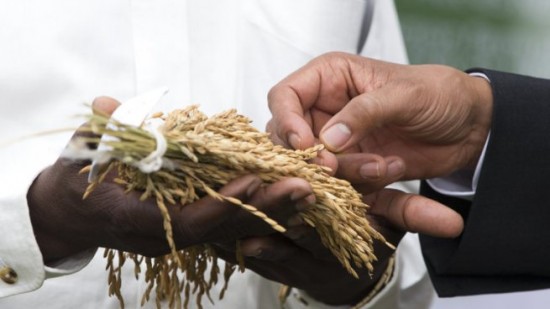
President Obama looks at rice crops during a food security expo on Frida in Dakar, Senegal. The President met with farmers, innovators, and entrepreneurs whose new methods and technologies are improving the lives of smallholder farmers throughout West Africa















No comments:
Post a Comment